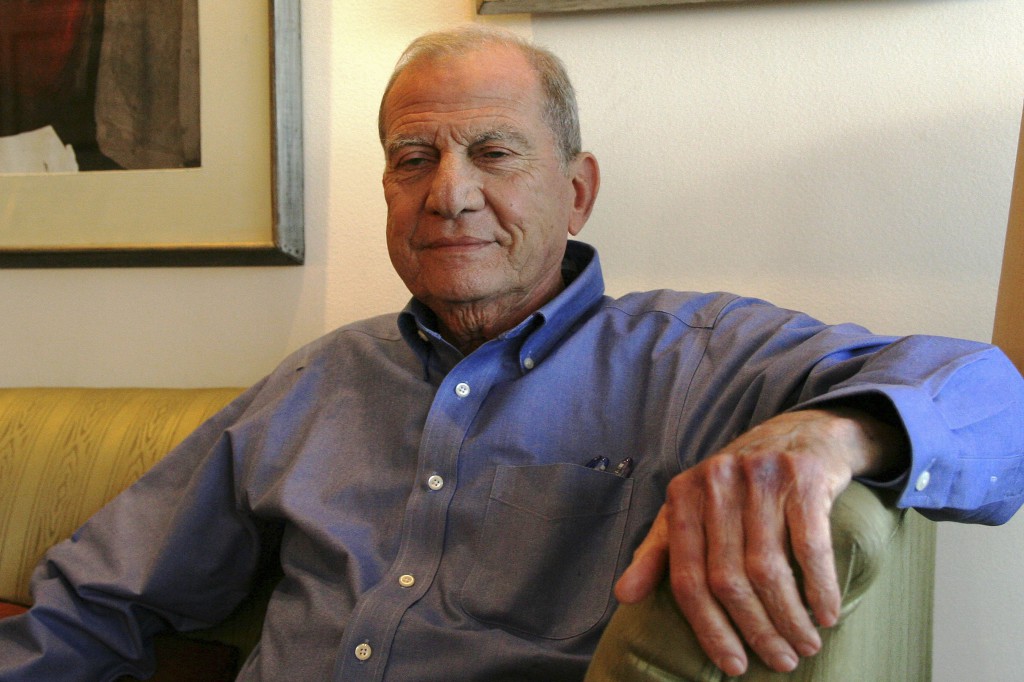Prominent Egyptian politician Mohamed Abul Ghar, who supported Abdel Fattah al-Sisi’s bid for presidency in 2014, likened Egypt’s current state of affairs to its defeat in the 1967 Arab-Israeli war, in an opinion article on Tuesday.
“Twice, I felt hopelessness in saving my country from falling into the abyss. The first was in June 1967 after the heavy defeat that killed my nation and tens of thousands of its soldiers and officers,” Abul Ghar wrote in the privately-owned Al-Masry Al-Youm.
Abul Ghar heads the Egyptian Democratic Social Democratic Party, which was founded after the 2011 uprising that toppled long-serving President Hosni Mubarak. The party has only four seats in the current 596-seat parliament.
“Now, I have become certain that the chances are slim,” he wrote, lamenting the country’s “fragmentation,” a police that “beats and tortures,” cabinet ministers whose presence is “ceremonial” and an economy that has “collapsed” as the Egyptian pound’s exchange rate plunged against the US dollar.
He also criticized the president for “working alone,” “implementing giant projects without [prior] economic studies” and for delivering a “frustrating speech in which he symbolically announced putting himself on sale.”
In a speech he gave in February, to launch of the country’s sustainable development strategy, Sisi said he would offer himself for sale if this were possible, urging Egyptians to donate funds to help the economy. Sisi also told Egyptians “do not not listen to anyone else but me,” words that were met with fierce criticism, especially on social media.
In his article, Abul Ghar also lambasted the state’s foreign policy. “Our relations with everyone have collapsed. We have even lost our friend Italy,” he said, referring to the highly publicized case of Italian PhD student Giulio Regeni, whose body was found in a ditch on the outskirts of the Egyptian capital, marred by torture marks and bruises. A number of media reports accused Egyptian security forces of torturing the Italian student to death, which the Egyptian interior ministry has categorically denied.
Abul Ghar also took aim at Egypt’s relations with Arab countries and its policy toward the dispute with Ethiopia over Egypt’s share of Nile River water. Egypt has been receiving 55 billion cubic meters of the Nile river’s water annually, the largest share, as per colonial-era agreements signed in the absence of Ethiopia, whose Blue Nile tributary supplies most the water.
Abul Ghar is not the first person in recent weeks to shift from backing Sisi to being critical of the general-turned-president. Ibrahim Eissa, a renowned columnist and TV host who once supported the president, wrote a strongly-worded article criticizing him in February.
Prior to becoming president, Sisi was Egypt’s defense minister and he led the popularly-backed military ouster of then-President Mohamed Morsi of the Muslim Brotherhood in 2013, following mass protests against his rule.
Abul Ghar was one of the 50 figures who drafted the country’s 2014 constitution that was adopted after Morsi’s ouster. He and other members of the committee that wrote the constitution held a press conference on Tuesday announcing the launch of the “Egyptian Foundation to Protect the Constitution.”
This content is from: Aswat Masriya







Comments (0)